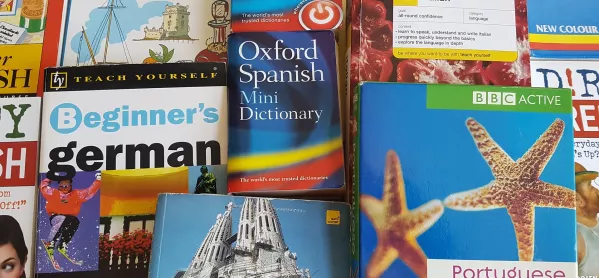A schools minister will “take back” to the Home Office a recommendation that French, German and Spanish teachers should be given higher priority for visas.
The news comes amid concerns about the teacher recruitment and retention crisis, and a Tes analysis which showed that England will need an extra 47,000 secondary teachers by 2024.
Tes has been running a campaign, #LetThemTeach, which is calling for the government to add the entire teaching profession to the shortage occupation list, which would make it easier for teachers outside the EU to get visas to teach in the UK.
Quick read: Tes launches #LetThemTeach campaign
Teacher training: DfE misses targets in most secondary subjects
#LetThemTeach: Key victory for Tes teacher visa campaign
Months after the campaign was launched, the DfE said that the Home Office’s Migration Advisory Committee would consider whether to extend the list of subjects beyond the current maths, physics, general science, computing and Mandarin.
Yesterday, Lord Agnew was challenged in the House of Lords over concerns about the future supply of modern foreign language (MFL) teachers.
Baroness Coussins, who is vice president of the Chartered Institute of Linguists, warned that “an estimated 35 per cent of our MFL teachers are non-UK EU nationals, and that even if every single one of our students now doing languages at university went into teaching, the shortage of MFL teachers would still not be met”.
She asked the minister: “Will he, therefore, ensure that the shortage occupations list is amended when the new skills-based immigration rules are introduced, so that the list includes teachers of French, German and Spanish as well as Mandarin teachers, who are the only ones on that list at the moment?”
In his response, Lord Agnew said: “The noble baroness makes a very good point, and I will certainly take that recommendation back to my department and the Home Office.”
In December, the government admitted that its plans for a new immigration system after Brexit could hit teacher recruitment.
Its White Paper, The UK’s future skills-based immigration system, examined the possible impact on immigration from countries in the European Economic Area of introducing a £30,000 salary threshold for skilled workers.
It acknowledged that teaching was a profession where “a relatively large share of employees” earn less than £30,000.
It said that teaching has been “heavily reliant on long-term EEA migrant labour and may find adjustment to labour market changes difficult”.




